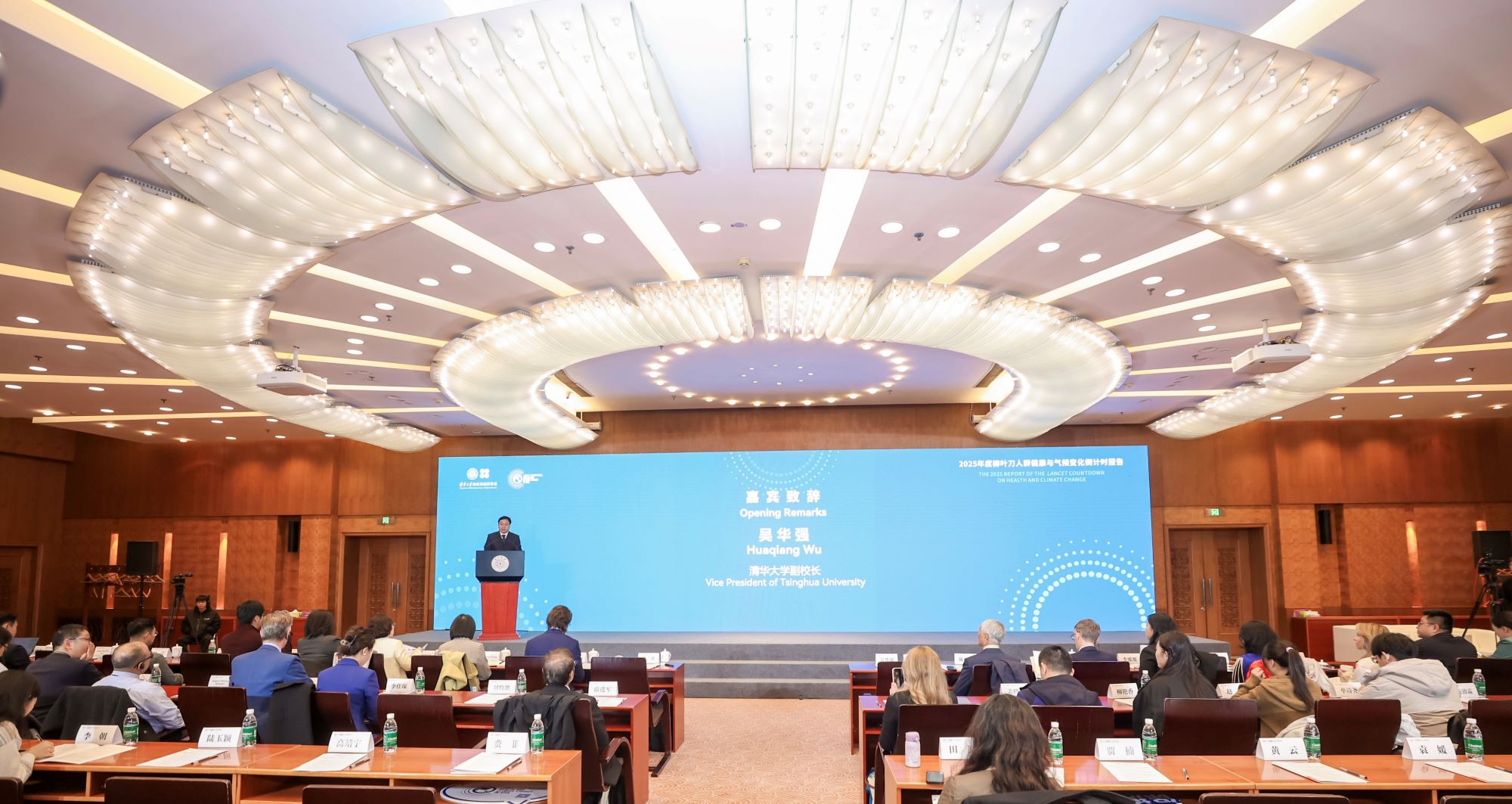New Lancet Countdown China report reveals eight of 13 climate-health risk indicators at historic peaks; Beijing launch showcases scalable approaches for resilient and low-carbon urban development.
As eight of 13 critical climate-health risk indicators hit record highs in China, the 2025 Lancet Countdown China Report offers valuable lessons for urban resilient and low-carbon development, launched on October 31 at Tsinghua University.

Wu Huaqiang, vice president of Tsinghua University, Sandro Demaio, head of Environmental Health for the Asia-Pacific Region at the World Health Organization, Helena Wang, senior executive editor for Asia of the Lancet, and Gong Peng, vice president of the University of Hong Kong and global co-chair of the Lancet Countdown, attended and addressed the event, chaired by Luo Yong, professor and chair of the Department of Earth System Science at Tsinghua University, and co-chair of the Lancet Countdown Asia Center.
In his speech, Wu Huaqiang mentioned that the report offers a Chinese perspective and Chinese solutions for global climate and health governance, serving as a testament to Tsinghua University's fulfillment of its international responsibilities through the power of scientific research.
Gong Peng stated that this report will provide critical support for city-level climate actions and generate extensive influence across multiple dimensions.
Sandro Demaio remarked that the Lancet Countdown China Report stands as both a testament to scientific excellence and a call to collective responsibility, to protect the health of people and the planet we share.
Helena Wang noted that the China Report released today serves as a forward-looking call to action, inviting all of us to work together to transform scientific insights into concrete measures that protect every life and every community.
Marking World Cities Day under the theme “Empowering Cities for Synergistic Action”, the report provides unprecedented city-level analysis, exposing a critical gap between national/provincial assessments and the unique risks facing individual cities. "While climate red alerts are flashing everywhere, we must fight public desensitization and provide cities with targeted solutions," said Professor Cai Wenjia, Director of the Lancet Countdown Asia Centre at Tsinghua University. "Our analysis shows health-focused climate action isn't an economic brake – it's actually an accelerator for growth."
Key findings with regional implications include:
• Asians now experience an average of 20 heatwave days per year (2022-2024), with climate change responsible for 16 of these days
• Public risk fatigue is emerging as climate warnings become constant, threatening response effectiveness
• Each city faces its own distinct climate-health crisis – national averages mask critical local vulnerabilities
• Scientific research doesn't match cities' most urgent needs, with cost-effective solutions remaining scarce
• Health-centered climate action accelerates rather than hinders economic growth
The report identifies cities as both the epicenter of climate health risks and the engine of solutions, outlining five priority actions from developing people-centered early warning systems to embedding health in smart city planning.
The launch featured experts from Singapore, India, Australia and China discussing practical urban solutions. The event also highlighted new financing pathways. The Asian Infrastructure Investment Bank outlined its focus on health- and nature-positive infrastructure, while the Asian Venture Philanthropy Network introduced its Climate x Health Lighthouse Fund—Asia's first philanthropic fund scaling adaptation innovation.
The full report is available at: https://www.thelancet.com/journals/lanpub/article/PIIS2468-2667(25)00230-0/fulltext
Editor: Li Han

